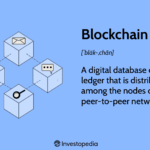Navigating AI and student data privacy involves understanding legal frameworks and ethical guidelines. Protecting sensitive information is paramount as education technology advances.
With the integration of artificial intelligence (AI) in educational spaces, the topic of student data privacy has never been more complex or important. Educators and tech developers must balance the innovative benefits of AI-powered tools with the responsibility of safeguarding students’ personal information.
The intersection of AI in education brings forth a myriad of benefits, from personalized learning experiences to streamlined administrative processes. Yet, this merge also raises significant concerns over how student data is collected, stored, and utilized. Ensuring privacy in this digital age demands diligence and a strong grasp of evolving regulations such as FERPA, COPPA, and GDPR. Educational institutions, along with AI technology providers, must therefore establish robust data protection strategies to maintain the trust and safety of their student community while leveraging the transformative power of AI in education.
Introduction To Ai In Education
Introduction to AI in Education: In a world teeming with innovation, artificial intelligence (AI) has made a notable entry into the realm of education. AI’s application in learning environments is revolutionizing how students interact with educational content. It offers tailored learning experiences and instant feedback. But as AI gains momentum, student data privacy emerges as a critical concern. Grapple with the complexities as we explore the benefits and potential pitfalls of AI in education.
Overview Of Ai Applications In Learning Environments
AI’s introduction to classrooms spans a variety of forms. Smart algorithms power educational software, providing real-time insights into student performance. AI-driven programs streamline administrative tasks, making school management more efficient. Even virtual learning assistants, powered by AI, guide students through complex problem-solving tasks.
Benefits Of Ai In Personalized Learning And Feedback
- Customized Learning Paths: AI tailors learning materials to meet individual student needs.
- Immediate Assessment: AI evaluates student work instantly, delivering prompt feedback.
- Engagement Enhancements: Interactive AI elements keep students engaged and motivated.
Concerns Regarding Student Data Privacy
Data Privacy: As AI tools collect large volumes of student data, the need for robust privacy measures grows. Parents and educators question how this data is stored, used, and protected. The potential for data breaches or misuse stands as a towering concern in the digital age of learning.
Unpacking Student Data Privacy
Welcome to the insightful exploration of Unpacking Student Data Privacy. As technology reshapes education, an understanding of student data privacy becomes crucial. Join us as we delve into its definition, legislation, and real-world implications.
Definition And Scope Of Student Data
Student data encompasses a wide array of information. It includes personal identifiers like names and social security numbers. Academic records, attendance, and even behavioral patterns also form part of this data.
- Identifying Information (e.g., name, address, parent details)
- Educational Records (e.g., grades, transcripts, test scores)
- Online Activities (e.g., emails, learning platform interactions)
- Behavioral Assessments (e.g., participation, conduct records)
Current Legislation On Protecting Student Data
Laws ensure the protection of student privacy. The Family Educational Rights and Privacy Act (FERPA) is a key federal law in the United States that safeguards student information.
| Legislation | Purpose | Scope |
|---|---|---|
| FERPA | Protects student education records | Federal Level |
| COPPA | Protects online data of children under 13 | Federal Level |
| GDPR | Regulates data protection and privacy | European Union |
Many states also enact additional privacy laws. These laws address specific aspects not covered federally.
Data Breaches In Educational Systems: Case Studies
Data breaches pose significant risks. Educational institutions have witnessed several such incidents.
- University A’s Incident: Personal details of students were exposed due to a security flaw.
- School B’s Ransomware Attack: Hackers locked access to student records, unsettling the student body.
These case studies show the need for stringent data security measures. Schools and universities must invest in robust cybersecurity protocols.
Ai’s Impact On Student Data Privacy
Artificial Intelligence (AI) plays a growing role in enriching education. AI tools offer personalized learning and automate administrative tasks. Yet, it raises significant student data privacy concerns. Let’s explore how AI processing affects privacy and the mixed outcomes of its use in schools.
How Ai Processing Amplifies Privacy Concerns
AI systems often require large datasets to learn and make decisions. Schools collect detailed student information, from academic records to behavior patterns. When AI processes this data, it can reveal sensitive insights. Concerns arise around who has access to this information and how it is used.
- Data breaches can expose student details
- Unintended data sharing may occur
- AI might make flawed decisions, impacting students’ lives
Potential Risks Associated With Ai Analytics On Student Data
Potential risks highlight the need for robust safeguards. AI analytics can lead to:
| Risk Type | Description |
|---|---|
| Privacy Violation | Personal information might become public. |
| Profiling | Students could be unfairly categorized. |
| Security Issues | Hackers may target vulnerable systems. |
Case Studies: Positive And Negative Impacts Of Ai On Data Privacy In Schools
A look at case studies shows AI’s mixed impact:
- Positive Outcome: AI adoption in a Texas school resulted in improved personalized learning, with data kept secure through state-of-the-art protocols.
- Negative Outcome: A breach in a California district’s AI system caused a massive leak of student records, highlighting the need for stronger security measures.
These cases stress the importance of balancing innovation with safety precautions.
Proactive Measures To Protect Student Privacy
Exploring proactive measures to protect student privacy is crucial in the age of AI. Schools and educators now handle vast amounts of sensitive data. Ensuring the security and confidentiality of this information is paramount. Here are some actionable steps and considerations.
Best Practices For Schools And Educators
- Conduct regular training for staff on data privacy and security protocols.
- Use encrypted communication channels to share student information.
- Implement strong password policies and two-factor authentication.
- Limit access to student data based on role-specific needs.
- Review and update privacy policies annually.
Role Of Policy: Crafting Data Governance Frameworks
Schools must develop a data governance framework that clearly defines how student information is handled. Policies should address:
| Data Collection | Data Storage | Data Sharing |
|---|---|---|
| Limit to essential information | Use secure servers | Define clear protocols |
| Obtain informed consent | Conduct regular audits | Train staff on compliance issues |
Involvement Of Parents And Students In Data Privacy
Engaging the school community is essential for effective data privacy.
- Organize information sessions on data rights and security.
- Provide resources that help understand privacy terms and conditions.
- Encourage students to practice good digital hygiene.
- Involve the community in policy development for better buy-in.
Future Challenges And Opportunities
As we peek into the future, AI and student data privacy flit on a tightrope between innovation and protection. This balance becomes even trickier with new tech on the rise. Schools want to stay ahead, yet keeping student data safe is a must. Here, we examine the challenges and openings that upcoming technologies bring, aiming to find that sweet spot where learning meets ethical data use.
Emerging Technologies And Their Implications On Data Privacy
New tech tools are super cool for schools. They can make learning fun and quick. However, they can also peek into student’s private info more than we want. Here’s what comes into play:
- Virtual Reality (VR) – Kids can visit pyramids or swim with sharks. But, their moves and choices get tracked.
- Learning Analytics – A way to see how students perform but also collects heaps of data.
- Biometrics – Recognizes who you are by your face or finger. Super smart, yet it gathers very personal info.
Balancing Innovation In Education With Ethical Considerations
Creating cool school tools using AI is a goal for many. Still, we must play fair with how we use student data. Here’s how to stay on the right side:
- Always ask for permission before using data.
- Teach students about data privacy, so they know their rights.
- Test every new tool carefully to see how it handles data.
Building Transparency And Trust In Ai-enabled Educational Tools
For AI tools in schools to really work, everyone must trust them. Trust comes from being open about how data is used. Here’s a checklist:
- Tell students and parents what data you collect and why.
- Show them the data is safe and not shared wrongly.
- Be clear on how AI helps in learning.
Conclusion: Ensuring A Safe Educational Technology Ecosystem
Exploring how to protect student data while harnessing AI’s power for education is essential. This final section looks at how stakeholders can unite to create a secure and enriching learning environment for students.
Recap Of Ai’s Potential And Risks In Education
AI offers thrilling opportunities for personalized learning and efficiency in education. Yet, it also presents data privacy concerns. Students’ sensitive information could fall into the wrong hands. Thus, we must balance AI benefits with the need for student data protection.
The Way Forward: Collaborative Efforts Towards Privacy-safe Ai Learning Environments
- Teachers, parents, and policymakers must work together.
- Creating clear guidelines for data usage is critical.
- Technology providers should make systems that prioritize privacy.
Together, these efforts form a sturdy framework to safeguard students.
Final Thoughts: Empowering Students In The Age Of Ai
Educational AI should foster growth without compromising privacy. We aim to nurture students’ independence in a tech-driven world. Equipping them with knowledge about data rights is vital. Encouraging their active participation in these discussions is equally important.
Students must feel confident that their personal data stays safe while they benefit from AI innovations.
Frequently Asked Questions For Ai And Student Data Privacy: Navigating The Complexities
How Does Ai Affect Data Privacy?
AI can analyze vast data sets, potentially exposing sensitive information, and may challenge existing data privacy norms and regulations. Privacy concerns arise as AI algorithms could identify individuals from anonymized data. Effective safeguards are paramount to protect personal privacy in the AI era.
What Are The Problems With Ai In Schools?
AI in schools can lead to data privacy concerns, unequal access for underprivileged students, potential job loss for educators, and over-reliance on technology, which may impede critical thinking and social interaction skills.
How Has Ai Affected Students?
AI has transformed education by providing personalized learning experiences, instant feedback, and access to vast resources, enhancing students’ engagement and understanding.
How Do I Stop Ai From Invading Privacy?
To stop AI from invading privacy, implement strong data encryption, limit data sharing, and regularly update privacy settings. Use reliable AI services with transparent policies, and maintain up-to-date cybersecurity measures to protect personal information.
Conclusion
Balancing AI benefits with student privacy is essential. Educational tools must respect data protection laws. Schools should prioritize safe, ethical AI integration. Students deserve innovative learning and privacy security. Navigating this landscape calls for ongoing vigilance and collaboration among educators, policymakers, and technology providers.
Together, we can pave a path that harnesses AI’s educational potential while safeguarding student data privacy.





